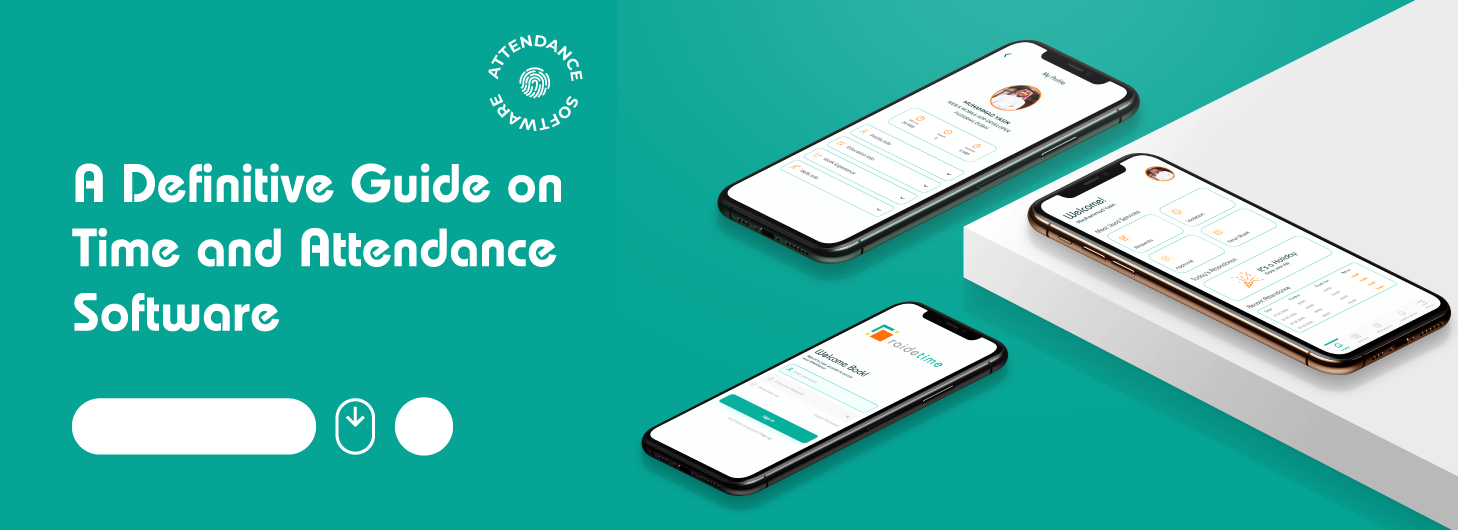Written By
Kalim Ullah
2025-Jul-03
Smart and Proven Strategies for Accurate Employee Tracking in 2025
Time theft is silently draining
your business. The American
Payroll Association (APA) found that 75% of businesses in the United States are
affected by time theft every year. And this has lead to productivity
losses of $400 billion annually as well.
If you're a
small business owner or HR manager, this hits home. Because every minute lost
adds up to hours of wasted money. And when time tracking is off, everything
else goes wrong too.
You might
face payroll
errors.
You could get fined for compliance issues. And worst of all, your team starts
losing trust.
In today’s
work culture, accurate employee tracking
isn’t just a “nice-to-have.” It’s a must-have survival
strategy.
If you still
using manual timesheets or outdated tools, then you’re likely bleeding time and
you may not even know it.
But don’t
worry. This guide is here to help. We’ll show you smart employee tracking strategies for 2025
that actually work.
From geofencing to
mobile time tracking tools,
we’ll walk you through modern methods that save time, money, and stress. You'll
even learn how to build audit-proof systems
that keep you compliant and covered no matter what.
Here's
your roadmap to efficient time tracking.
1. Build Your Time Policy
Imagine
playing a soccer game with no goalposts. No one knows where to shoot. No one
knows when the game ends. That’s exactly how time theft happens in many
businesses, because there are no clear rules.
Your employee time policy is your playbook. It tells your team
what’s okay and what’s not.
It sets clear expectations for time tracking, breaks, and overtime.
Here’s what a
strong time policy should cover:
· When to clock
in and out
For example, only allow clock-ins when the employee is within 100 feet of the
office.
That stops buddy punching and fake clock-ins.
· How break
times work
Make it clear: short breaks under 20 minutes are paid. But lunch breaks longer
than 30 minutes are unpaid.
These rules follow the U.S. Department of Labor’s break guidelines.
· Overtime
tracking rules
Stick to FLSA
guidelines to
avoid legal trouble. This ensures you pay fairly and stay compliant.
Let’s take a
small café’s example. They had weekly payroll fights. Because employees kept
swapping shifts without telling the manager. There were no written rules. Just
confusion.
So, the owner
created a simple 1-page time policy. He printed it. Shared it in meetings.
And guess what?
Payroll arguments dropped in
just one month.
But you don’t
need to start from scratch. Use RaideTime’s free built for your industry. They’re ready to use and easy to
customize.
Then go one
step further, share your rules through onboarding videos, team meetings, and
even Slack channels.
The more
mouths can talk about it, the more people will follow the rules. Because clear
policies build trust. And trust leads to better teams and smoother payroll.
2. How Digital Tools Save 8 Hours
Weekly
If you still
using paper to track time, then you’re like using a sundial during a
thunderstorm.
It looks simple, but it breaks when you need it the most.
Paper timesheets
are easy to lose.
- They’re messy.
- They’re full of errors.
And the worst
part is, they don’t tell you what’s really happening.
In fact, studies
show that 88% of spreadsheets have mistakes.
That means your
team may be working hard... But your numbers could still be wrong. And wrong
numbers mean wrong paychecks.
Wrong paychecks mean unhappy employees.
And unhappy employees mean lost trust.
Why You Need Digital Tools
Modern employee attendance software makes
everything smoother:
- Use mobile apps to let workers clock
in from job sites.
- Store all
time data safely in the cloud,
no more missing sheets.
- Get a real-time dashboard that shows
who’s working and where.
All this saves
time. And stops the guesswork. They give you real hours, real reports, and real
results. And in 2025, facts matter more than ever.
3. Geofencing
Time theft isn’t always sneaky. Sometimes it
happens right under your nose.
That’s where geofencing time tracking comes in. It’s
like setting up an invisible GPS fence around your job sites. If someone’s
outside the fence, they can’t clock in. It’s simple, smart and super effective.
What Is
Geofencing Time Tracking?
Think of it
like a digital gate. Only people inside
the gate can enter the system. So if an employee tries to clock in from their
couch or worse, it won’t work.
This stops buddy punching, fake time entries, and early
clock-ins. Here’s how it works step-by-step:
1. Create zones on
the app about your place of work i.e. office, warehouse, client site.
2.
As employees enter the zone, they
get a reminder:
“You’re here. Want to clock in now?”
3.
If someone tries to clock in from
a wrong location, managers get an alert.
RaideTime’s
3-Step Setup
RaideTime makes it simple
1.
Tap "Add Geofence" in
your dashboard.
2.
Use the map to circle your job site.
3.
Add custom rules like: “Allow
clock-ins only between 7 AM and 7 PM.”
That’s it. No
tech skills needed.
Just a few taps, and you’ve locked out time theft.
That’s not
just saved time. That’s saved money, week after week. And no more awkward talks
about “why were you clocked in from home?”
Why
Geofencing Matters in 2025
Today, many
teams work in different locations. Offices. Warehouses. Construction sites. Tracking
who’s working where can get messy.
But geofencing in employee time tracking
gives you clarity. It builds accountability.
And it helps your business stay fair, fast, and fraud-free.
4. Auto-Timesheets
Audits are
stressful. They take days, sometimes weeks.
And most of
that time? You’re digging through messy paper records or fixing broken
spreadsheets.
But what if
you could finish all that in minutes?
That’s where auto-generated
timesheets helps. They take raw clock-in data and turn it into
clean, accurate records, automatically.
How Auto-Timesheets Save You Time and Headaches
Manual
timesheet checks are slow. They burn hours. And they leave room for human
error. But automated systems do the hard work for you. Here’s how:
·
They create accurate timesheets
directly from employee clock-ins and outs.
·
They spot red flags like 14-hour
shifts or missing break times.
·
They generate audit trails, with full timestamps and GPS data to
prove when and where employees worked.
Sync Your
Time System with Payroll
Connect your
time tracking tool like RaideTime to your payroll software.
For example,
syncing it with QuickBooks makes
payroll super easy.
It automatically sends timesheet reports
for FLSA
compliance.
- No manual
input.
- No missed data.
- Just clean, audit-ready records.
Why It
Matters in 2025
Labor laws
are getting stricter. Audits are more common. And manual systems just can’t
keep up.
But with auto-timesheet software, you gain a compliance shield. You save time, reduce stress, and
protect your business. All while giving your team peace of mind.
5. Let Teams Fix Their Own Errors
Let’s be
honest, no one likes chasing down time errors.
Not you. Not your HR team. And definitely not your employees.
That’s why self-service employee attendance software
is a game changer. It gives your team the power to manage their own time with
your approval.
What
Self-Service Really Means
With the
right tools, employees don’t have to email HR for every small issue.
They can:
·
Check hours
worked
right from their phone.
·
Fix missed
punches themselves then send them to a manager for approval.
· Get alerts when they’re
close to hitting overtime. Like: “Heads up you’re at 38 hours!”
This builds a
system of shared responsibility.
Everyone stays informed. And nothing slips through the cracks.
Why This
Works So Well
When
employees can manage their own time, magic happens:
·
You get fewer HR tickets asking,
“Where’s my overtime?”
·
Teams feel trusted and that trust builds
respect.
·
You save hours every week on
back-and-forth emails.
And it keeps
your time data clean and accurate.
Tools That
Make It Easy
There are
many self-service time tracking tools
out there.
Apps like RaideTime, Deputy and When I Work are built
for this.
They’re
mobile-friendly. Easy to use. And perfect for both office and field teams.
Why It
Matters
Today's
workers demand more flexibility and transparency. They want to see their hours,
fix small issues, and move on. You don’t need to play the role of time cop
anymore.
- Let your
tools handle it.
- Let your team take ownership.
- And focus on the big picture instead.
6.
Top 5 Tracking Blunders in 2025
Even smart
businesses make big tracking mistakes. These mistakes may look small…But they
cost time, money, and team trust.
Let’s break
down the top 5 time tracking mistakes
in 2025 and how to fix them fast.
Mistake #1: Ignoring Field Teams
Your field
workers are the heart of your business.
If you're using
old methods like paper or punch cards, it’s easy to miss real work time or
allow fake clock-ins.
Instead use GPS-based
monitoring software like RaideTime.
It shows exactly where and when someone clocks in.
Mistake #2: No Policy
Enforcement
Even the best
time policy fails if managers ignore it. When one manager is strict and another
is relaxed, teams get confused and frustrated.
Instead train your leads. Use SHRM’s toolkit to help
managers stick to your rules. Hold short refresher sessions each month.
Mistake #3: Using Old Tools
If you are
still tracking time with spreadsheets or outdated software, then you're asking
for errors and wasting time.
So move to cloud-based
performance trackers that auto-update. No more missing entries or broken formulas.
Modern tools update in real time and are easy to use on any device.
Mistake #4: Skipping Regular Audits
If you audit
only once a year, you will go a whole year without witnessing a seething
problem which, when finally revealed, may turn out to be a huge pile-up of
minor errors, and fines or lawsuits may be incurred.
Use RaideTime’s monthly discrepancy
alerts. It flags
unusual hours, missing breaks, and incorrect overtime automatically. A 5-minute
check saves a 5-day audit now.
Mistake #5: Ignoring Overtime Trends
Are a few
workers always racking up overtime? If yes, it’s time to look deeper. This
could mean bad planning or burnout.
Use analytics dashboards to track
patterns early.
Spot trends. Adjust schedules. And avoid surprise payroll spikes.
You’ve just
learned the tools, tips, and tech that modern teams are using to track time in
2025.
But time tracking
needs to be more than just looking at the clock; it's about really the time
spent in an environment of trust, clarity, and fairness.
Let us summarize:
- Start with clear time policies that every
team member understands.
- Use employee attendance software that
works from phones, job sites, and desktops.
- Add geofencing time tracking to stop
location-based fraud.
- Automate
audits, reports, and compliance to save hours every week.
- Let teams
manage their own time with self-service
tools and stop being the time cop.
Why Act Now?
Every day you
wait, more time slips through the cracks. And time loss means money loss.
But with the right tools, you can turn
every second into value.
Try RaideTime
FREE Trial
No credit card.
No stress. Just better time tracking.
Here’s what you’ll get:
- Smart geofencing for field teams
- Automatic audit-proof reports
- Easy-to-use employee self-service apps
- Seamless QuickBooks integration for
payroll
Because in 2025,
time is more than money. It’s your competitive edge.
Take control now.
You can actually start saving time, money, and peace of mind from today.



